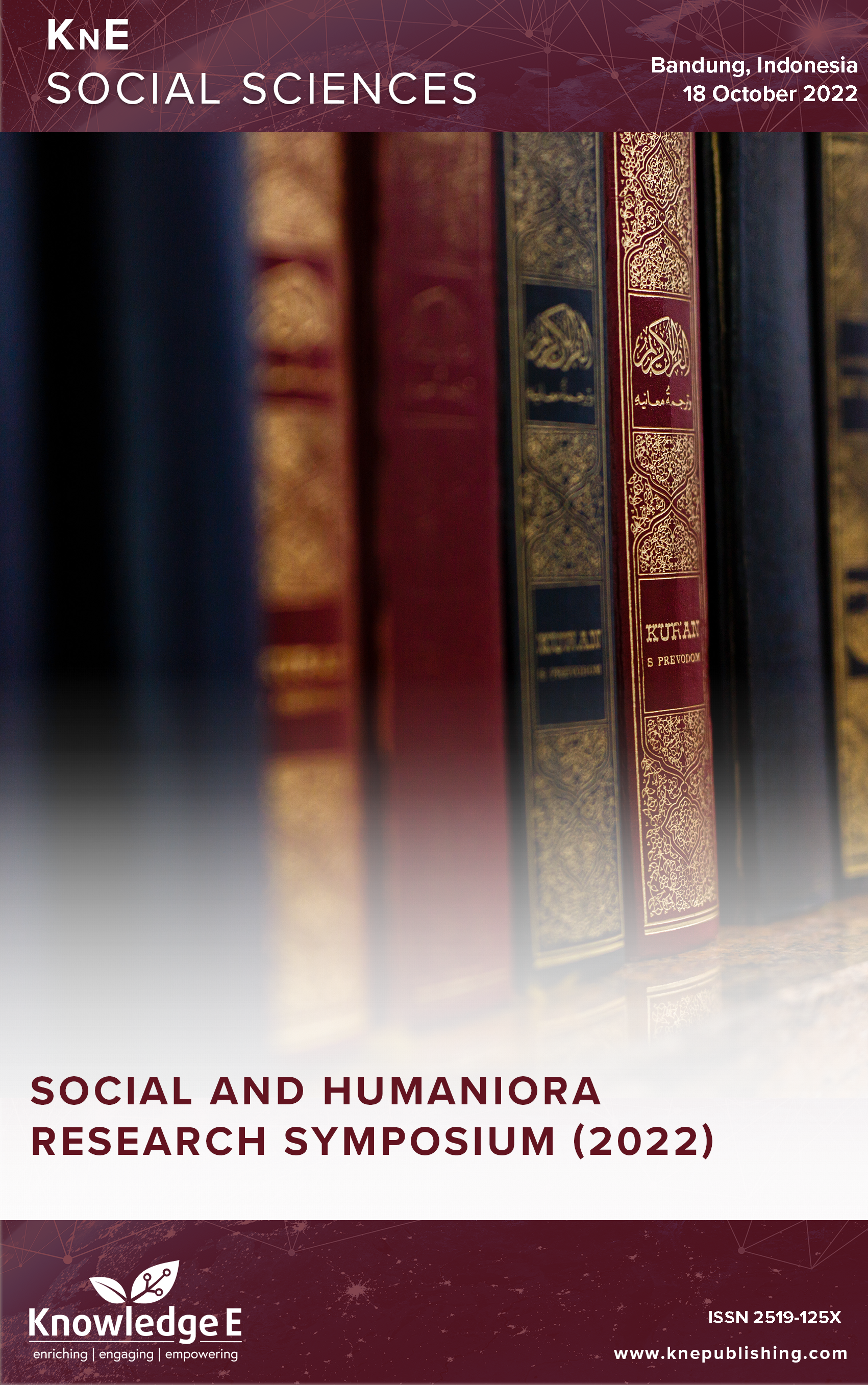Nazhir Legal Aspects of Cash WAQF in Indonesia in the 4.0 Era
DOI:
https://doi.org/10.18502/kss.v8i18.14331Abstract
This study aims to analyze the related law No. 41 of 2004 concerning endowments in particular the rules relating to endowment management institutions entitled to collect and manage money endowments (nadzhir waqf money) in Indonesia in the context of the era of 4.0 which emphasizes Islamic financial institutions and advances in digital technology. The method used is a qualitative research method with a normative juridical approach with data collection techniques study literature, interviews, and documentation, then analyzed through descriptive analytics. The results of this study indicate that the progress and development of technology in the 4.0 era, especially in the digitalization of the waqf program, makes the collection and management of waqf money mainly depend on the technological advancements owned by the institution, massive commitment and socialization to the public regarding money waqf, and Islamic financial institutions that collaborate with nadzhir. The recipient of the waqf money is considered to have technological devices and SDI that can support the management and collection of waqf money in Indonesia, in addition to credibility in terms of financial accountability as well as the guarantor and supervisory institutions in addition to the OJK, BWI, and DPS.
Keywords: cash waqf, nadzhir, money
References
[2] Prasetyo H, Sutopo W. “INDUSTRI 4.0: TELAAH KLASIFIKASI ASPEK DAN ARAH PERKEMBANGAN RISET,” J@ti Undip J. Tek. Ind., 2018. https://doi.org/10.14710/jati.13.1.17-26
[3] Sulistiani, Hayatudin A, Eprianti N. “Analysis of Waqf land legalization.” 2019. https://doi.org/10.2991/sores-18.2019.51
[4] Bayinah AN. “Re-designing governance of Waqf in Indonesia : Can it rely on Islamic Banking?” 2014.
[5] Siswantoro D, Rosdiana H, Fathurahman H. “Reconstructing accountability of the cash waqf (endowment) institution in Indonesia.” Manag Financ. 2018. https://doi.org/10.1108/MF-05-2017-0188
[6] Wulandari S, Effendi J, Saptono IT. “Pemilihan Nazhir Dalam Optimalisasi Pengelolaan Wakaf Uang.” J Apl Bisnis dan Manaj. 2019. https://doi.org/10.17358/jabm.5.2.295
[7] Ascarya. “The real determinants of financial crisis and how to resolve it in Islamic economics perspective”. Int J Econ Res. 2017.
[8] Hasim K, Lubis D, Ali KM. Analisis Faktor-Faktor yang Memengaruhi Penghimpunan Wakaf Uang di Indonesia (Pendekatan Analytical Network Process). Al-Muzara’ah; 2016. https://doi.org/10.29244/jam.4.2.127-141
[9] Leibowitz ML, Bova A, Hammond PB. The endowment model of investing: Return. Risk, and Diversification; 2011. https://doi.org/10.1002/9781118266533
[10] M. S.H. “KEBIJAKAN PERWAKAFAN DI INDONESIA (KAJIAN SEJARAH DAN PERUNDANG-UNDANGAN).” Yuriska J Ilm Huk. 2017. https://doi.org/10.24903/yrs.v3i1.189
[11] Kuran T. The provision of public goods under Islamic law: Origins, impact, and limitations of the waqf system. Law Soc Rev. 2001;35(4):841–897.
[12] Kencana U, Huda M, Maseleno A. Waqf administration in historical perspective: Evidence from Indonesia. Test Eng. Manag; 2019.
[13] Urif UZ, Fajria MI, Rahmi U. Zakat and Wakaf (endowments) role in Muslims economic development of Islamic Economic Perspective. ISLAMIKA; 2019. https://doi.org/10.36088/islamika.v1i2.299.
[14] Bank Indonesia, Wakaf: Pengaturan dan Tata Kelola yang Efektif. Jakarta: Departemen Ekonomi dan Keuangan Syariah, 2016.
[15] Hilmi H. “Dinamika pengelolaan wakaf uang: studi sosio-legal perilaku pengelolaan wakaf uang pasca pemberlakuan UU No. 41 tahun 2004 tentang wakaf.” Ijtihad J Wacana Huk Islam dan Kemanus. 2012. https://doi.org/10.18326/ijtihad.v12i2.123-143.
[16] Haura A, Baga LM, Tanjung H. Analisis Pengelolaan Wakaf Uang pada Koperasi Jasa Keuangan Syariah (Pendekatan Analytical Network Process). Al-Muzara’ah; 2015. https://doi.org/10.29244/jam.3.2.89-105
[17] Mu’is A, Nur Hamidah B. PENERAPAN WAKAF UANG SECARA PROFESIONAL MENURUT HUKUM ISLAM (Application of Cash Waqf in Good Governance). Qawãnïn J Econ Syaria Law; 2020. https://doi.org/10.30762/q.v4i1.2058

